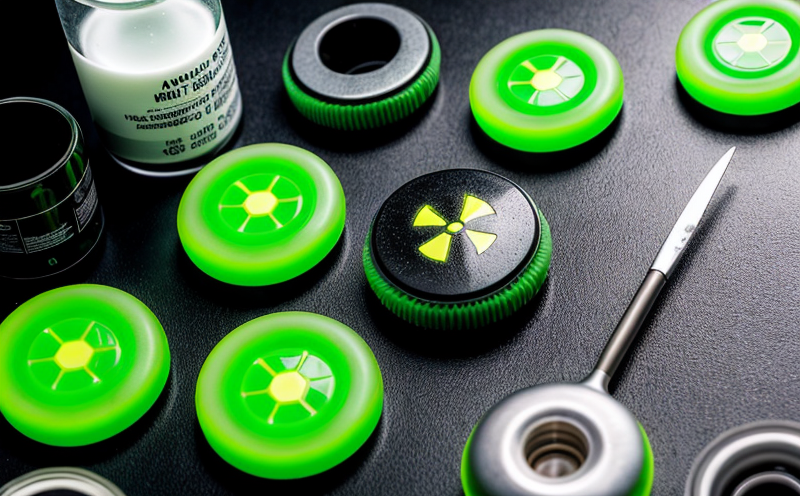FDA Guidance Strontium-90 Testing in Imported Foods
The U.S. Food and Drug Administration (FDA) plays a crucial role in ensuring that the food consumed by Americans is safe, wholesome, and free from harmful contaminants. In response to global nuclear events such as the 2011 Fukushima Daiichi nuclear disaster, FDA guidance documents have been updated to include stringent testing procedures for strontium-90 (Sr-90) in imported foods. Strontium-90 is a radioactive isotope of strontium that can be absorbed by plants and animals, making its presence in food a significant concern.
FDA guidelines are designed to protect public health by preventing the entry into commerce of foods contaminated with radioactivity above specified levels. The testing process for Sr-90 involves several stages, including sample collection, preparation, and analysis using highly sensitive instrumentation. Compliance officers, quality managers, R&D engineers, and procurement professionals must stay abreast of these evolving standards to ensure their imported food products meet regulatory requirements.
The FDA's guidance documents provide detailed instructions on how to test for Sr-90 in imported foods. These guidelines emphasize the importance of accurate and reliable testing methods, which include the use of liquid scintillation counting (LSC) or other suitable techniques approved by regulatory bodies such as ISO 17025.
To meet FDA requirements, laboratories must adhere to strict protocols for sample preparation. This includes thorough documentation of all procedures followed during the analysis process. It is essential that labs maintain a high level of accuracy and precision when performing Sr-90 tests on imported foods. Failure to comply with these standards can result in fines or even legal action against non-compliant entities.
The FDA has set specific limits for allowable levels of Sr-90 contamination in various food categories, including dairy products, fruits, vegetables, grains, and processed meats. Compliance officers should familiarize themselves with these limits to ensure they are meeting regulatory expectations. Additionally, R&D engineers involved in product development may find it beneficial to incorporate testing into their quality assurance processes early on in the design phase.
It is important for procurement teams to work closely with suppliers who have demonstrated compliance with FDA guidelines for Sr-90 testing. By doing so, they can help ensure that only safe and wholesome food products enter the supply chain. Laboratories offering comprehensive Strontium-90 testing services play an integral role in supporting these efforts by providing accurate results and actionable insights to guide decision-making processes.
Industry Applications
- Dairy products
- Fruits and vegetables
- Grains
- Processed meats
- Seafood
- Pet food ingredients
- Baby formula
The testing of Sr-90 in imported foods is not only important from a public health perspective but also has broader implications for international trade. Many countries have similar or stricter regulations regarding radioactive contamination limits, making it crucial for importers and exporters alike to understand these requirements fully.
Compliance with FDA guidelines can enhance a company's reputation among consumers who prioritize safety and quality in their dietary choices. It also helps build trust within the supply chain by ensuring consistency across suppliers and reducing the risk of recalls or other disruptions due to non-compliant shipments.
Customer Impact and Satisfaction
The implementation of rigorous testing protocols for Sr-90 in imported foods contributes significantly to enhancing customer confidence. By adhering strictly to FDA guidelines, laboratories demonstrate their commitment to providing accurate results that meet or exceed industry standards. This level of transparency fosters trust between suppliers, manufacturers, distributors, and ultimately, consumers.
For quality managers responsible for overseeing laboratory operations, ensuring compliance with FDA guidance on Sr-90 testing is key to maintaining high product standards across all stages of production. Compliance officers play a vital role in monitoring supplier performance and verifying that imported goods comply with regulatory requirements.
R&D engineers can benefit from having reliable data about potential contamination risks early in the design process, enabling them to make informed decisions regarding ingredient sourcing and processing methods. Procurement professionals who prioritize sustainable practices will appreciate knowing which suppliers adhere most closely to stringent testing protocols like those outlined by FDA guidance.
Competitive Advantage and Market Impact
- Enhanced reputation for safety and quality
- Better customer trust and loyalty
- Increased market share through differentiation
- Potential cost savings on recalls and rejections
- Easier compliance with international standards
- Improved supplier relationships based on mutual respect and shared goals
A laboratory specializing in FDA guidance Strontium-90 testing can provide significant competitive advantage by offering accurate, reliable results that meet or exceed regulatory expectations. This expertise enables businesses to stay ahead of competitors who may not yet be fully compliant with current guidelines.
By demonstrating a strong commitment to public health and safety through rigorous testing practices, such laboratories contribute positively to the overall reputation of their clients' brands. In an era where transparency is increasingly valued by consumers, having this type of service available can set companies apart from others in their industry.





